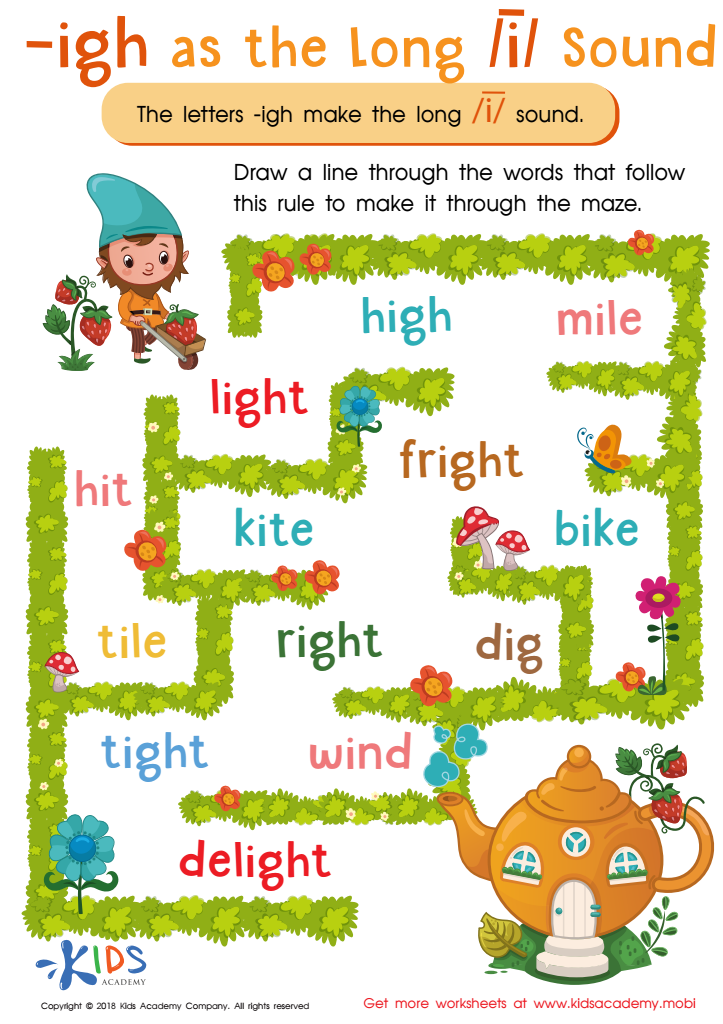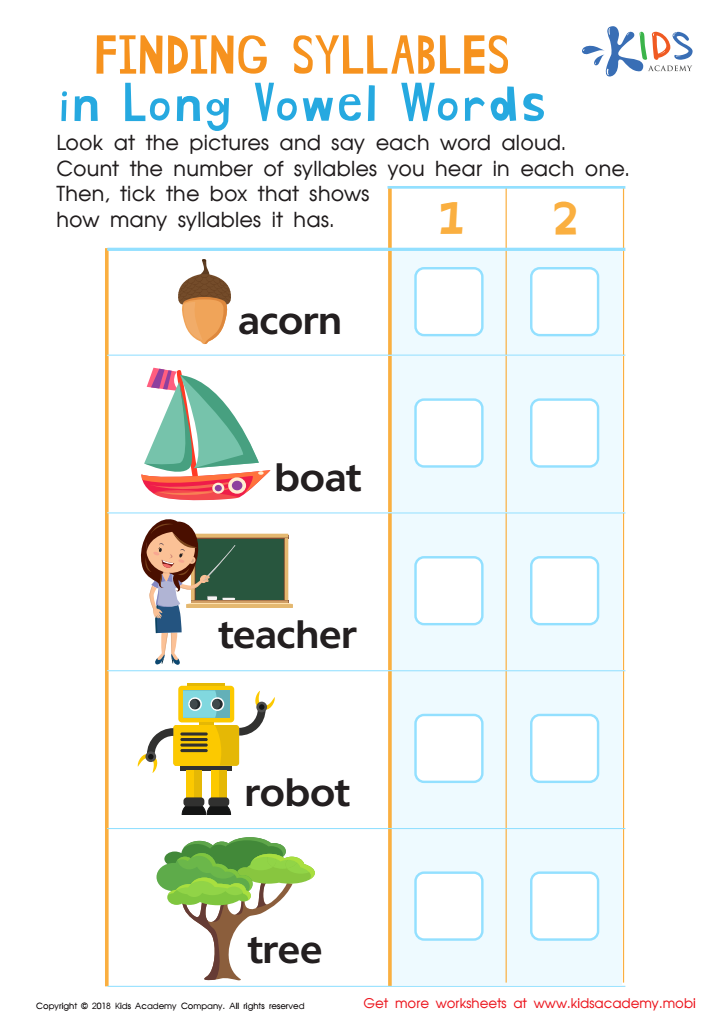Normal Vowels and Consonants Worksheets for Ages 4-9 - Page 2
26 filtered results
-
From - To


Reading: IGH as Long I Worksheet


Finding Syllables in Long Vowel Words Worksheet
Phonemic awareness, including understanding normal vowels and consonants, is foundational for early literacy, a crucial aspect of childhood development. Parents and teachers must care about these components because they significantly influence a child's ability to decode words, essential for fluent reading.
For ages 4-9, mastering vowel and consonant sounds helps children blend these phonemes to form words. This elementary skill underpins their reading proficiency. Early exposure ensures that children can recognize patterns in words, improving their spelling, reading fluency, and comprehension. For instance, vowels, with their diverse sounds depending on their placement, play pivotal roles in word formation and meaning. Understanding consonants, which often anchor syllables, also enriches a child's ability to decode new words.
Moreover, as children practice vocalizing these sounds, speech and communication skills improve, impacting overall academic performance. Delayed awareness can lead to struggles in reading and writing, which might persist and frustrate both students and adults involved in their learning journey.
Engaging with normal vowels and consonants through interactive activities or reading aloud sessions can be enjoyable. This not only fosters literacy but also strengthens the parent-child or teacher-student bond, nurturing a positive learning environment and encouraging lifelong reading habits.
 Assign to My Students
Assign to My Students








